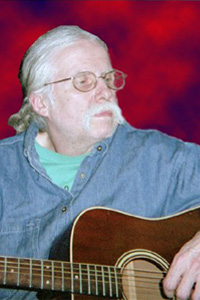What exactly is a speculative matter? What exactly does speculative mean? Why does speculative matter? First, let us look at Merriam-Webster:
Speculative, Adjective, spec·u·la·tive,
- involving, based on, or constituting intellectual speculation, also: theoretical rather than demonstrable,
- speculative knowledge, marked by questioning curiosity
There is a third definition but, as it refers to financial matters, we can ignore that one. I think the first two are what we are looking for. Speculative fiction has been considered from many viewpoints over the years. Often mocked as frivolous and overlooked as any kind of serious writing, speculative writings often have been considered the ugly, red-haired stepchild in many literary circles. Yet in retrospect, we can see that many changes that have come to pass were predicted in the “wild stories” by certain authors.
Some things we accept as normal and commonplace were once highly speculative.
Between 1863 and 1905, Jules Verne wrote his Voyages Extraordinaires.
These included, among many others; From the Earth to the Moon and Twenty Thousand Leagues Under the Sea. Both novels were considered wildly speculative at the time they were written and yet both are proven as prophetic rather than fancy.
In 1931, Chester Gould introduced to the world a comic book cop named Dick Tracy.
Not long after, on January 13, 1946, the two-way wrist radio was introduced, and would become one of the strip’s most immediately recognizable icons, and in 2015, Apple made this a reality.
On September 8th, 1966, NBC released a new TV show called Star Trek.
I watched all three seasons with religious fervor and although most of the inventions used by the crew of the Enterprise have yet to become reality, there is one device that was used from the first show ever-after that has become a mainstay of life in our world—the communicator. It only took thirty years for Motorola to introduce the StarTac, the world’s first flip phone. A very similar device to the communicators used by the crew of the Enterprise.
In July 1969, I watched as Neil Armstrong set foot upon the moon.
It may not exactly have been as Mr. Verne envisioned over one hundred years before, but it happened. His Nautilus was not the first submarine by any means, but Verne wrote that electric batteries powered this submarine, something which we are just beginning to master as a form of power for our vehicles.
There is a myth that he used an unknown power source that seems to imply he foresaw the power of the atom. However, radioactivity was not discovered until thirty years after Twenty Thousand Leagues Under the Sea was written. Interestingly, the first nuclear submarine built was named “The Nautilus” in honor of Captain Nemo’s vessel, but it was the speculative movie script writers at Walt Disney who planted the idea of nuclear power being involved, not Jules Verne.
So What is Speculative Fiction?
The term ‘speculative fiction’ is often attributed to Robert Heinlein, though he insisted it was referencing science fiction only and not fantasy, and that the term had been used by others before him. It has come to include much more than just hard science fiction including; fantasy, utopian and dystopian fiction, horror, alternate history and superhero fiction as well as science-fantasy.
There are arguments as to who wrote the first speculative fiction. Some offer H.G. Wells or Jules Verne, others speak of Mary Shelley and her novel Frankenstein. I will offer a different suggestion; Homer, who in The Iliad mentions the god Hephaestus who had helpers he had crafted. Helpers who were made of metal and who had thoughts within their heads. In other words, robots.
How many life-changing innovations only exist as the written word at this time? Many, I am sure. This is why speculative things matter. Someone has to dream about the inventions before they can come into existence. Someone has to think… “Wouldn’t that be handy?” Then speculation can become reality.

Casey Cooper is the son of two teachers, the grandson of a university professor on one side, and a jazz drummer on the other. Somehow, he escaped teaching, but not music. After retiring from his day job, just in time for COVID, he devoted his first year of ‘freedom’ to self-recording a musical concept album. In his second year, he turned to writing.
An avid reader, he averages a book a week. The usual fare is Fantasy or Sci-Fi. Sometimes Action/Adventure. He has been seen reading all kinds of things, from fairytales to super-string theory.
He holds guest citizenship in The Forgotten Realms, Oz, Pellucidar, and on the Discworld. He lives alone with his two trusty cats. Liv, a lavender tortoiseshell, and Riley, an orange tiger. You can follow him on Facebook.







